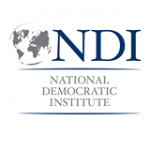‘Truly digital’ electoral voting, powered by blockchain technology
Despite the best efforts put into play by numerous companies, and legislators, to disparage electoral malpractice, transparency remains an issue. Blockchain technology is now on the radar.
Blockchain technology is becoming more widely accepted in many industries. While bitcoin has the public ledger meant to disrupt the banking industry, throughout 2015 banks have publicly stated their interest in the underlying technology. Barclays has established independent research hubs, while the R3 CEVs membership list is a veritable who’s who of financial institution.
One of the many other applications for blockchain technology is voting. Flawed or failed elections are nothing new, they can suffer from fraud, corruption, or vote-rigging. During the 18th and 19th Centuries, such practices were common in countries holding popular contests, including in rotten and pocket boroughs in Britain, and machine politics in the United States.
The concern about malpractice, however, has grown in recent decades, along with the spread of elections to almost every state worldwide. Contemporary campaigns attracting considerable international concern include; allegations of irregularities occurring during the Russian presidential election, 2012; problems of violence during and after the Kenyan general election, 2007; and controversies in the Cambodian general election, 2013.
The National Democratic Institute is a nonprofit, nonpartisan organization, that states a key principle for credible elections is transparency.
“Providing transparency in an election helps establish trust and public confidence in the process, as voters have a means to verify the results are an accurate reflection of the will of the people.”
— – National Democratic Institute
The institute explains that electronic voting and counting technologies pose a challenge to ensuring transparency, “since many visually-verifiable steps in a traditional election (such as how ballots were marked) are automated inside a machine and, therefore, cannot be seen by the voter and others.”
By casting votes as transactions, a blockchain can keep track of them much more efficiently, and transparently, than legacy solutions. By using a public blockchain, everyone can then agree on the final tallie, as they can count the votes themselves. They can verify that no votes were changed or removed, and no illegitimate votes were added.
Global Election Services, Inc. (GES) is a company that provides “technology-enabled election services,” primarily for organized labor associations. Senior staff have been supervising elections since 1981, having managed over 7,000 elections involving more than 40,000,000 voters.
Earlier this year, GES was acquired by Global Arena Holding (GAH), a company focused on technologies, patents and companies that have the ability to leverage blockchain solutions.
“For years, we’ve wanted to run truly digital elections in this country but the fear of tampering and hacking has kept it from becoming a legitimate possibility. In turn, our election process has remained archaic, tampering is still a problem digital or not, and voter turnout remains miniscule. However, if there was ever a way, to safely bring the voting process out of the dark ages and advance ballot elections into a high-tech world, ‘the blockchain’, is it.”
— – John Matthews, CEO and Chairman of Global Arena Holding
Since being acquired, GES has grown dramatically, recently securing a further nine election contracts, "The success of GES must be credited to Maralin Falik," said Matthews. "Her 30 plus years of experience in election administration has yet to be truly showcased. So we do anticipate continued sales growth at a healthy pace."
Falik has steered GES to a total sales revenue of $486,122 in just 6 months. According to Mathews this is no accident, and her experience “affords her some authority to suggest what the future of ballot election services could resemble, with the implementation of the right technology."
GAH recently solidified its entry in the the blockchain industry, with an initial investment in Blockchain Technologies Corporation (BTC). This secures six more blockchain startups, and a handful of patents.
“This gives Ms. Maralin Falik the ability to leverage the power of the blockchain, through vertical applications developed by BTC — and enhance the rapid expansion of our election services business," Mathews explained.
Falik has been exploring expansion opportunities by offering blockchain secured voting applications, developed by BTC, to a “sizable, longstanding” client list, she stated.
"Our intended expansion using secured blockchain voting platforms, however inviting it may be, must maintain the surety of a safe and secure voting process — the caliber of which GES’ team is known for.”
— – Maralin Falik
While the GES team has yet to release any details on the process, hardware or mechanics of the solutions being offered to clients, they claim to have begun “conceptually augmenting the process of registered mail ballots, in-person registrations, tabulations and internet voting.”
“I’m quite positive, there are a many advocates that would agree, if there is any technology that could advance ballot elections into a high-tech world, ‘the blockchain’ is it.”
— – Matthews
Matthems and Falik are far from the first to attempt a blockchain based voting system. The Liberal Alliance in Denmark was the first political group to use a blockchain system, during their internal elections.“The blockchain removes the need for trust, since the technology can run autonomous without interference from people, and it is at the same time open source and transparent, so that everybody can look under the hood, to take a look at how it functions. It doesn’t get any more liberal – so that’s why it’s an obvious choice for e-elections,” said Mikkel Freltoft Krogsholm in the party’s press release.

Don’t miss out – Find out more today


 “For years, we’ve wanted to run truly digital elections in this country but the fear of tampering and hacking has kept it from becoming a legitimate possibility. In turn, our election process has remained archaic, tampering is still a problem digital or not, and voter turnout remains miniscule. However, if there was ever a way, to safely bring the voting process out of the dark ages and advance ballot elections into a high-tech world, ‘the blockchain’, is it.”
“For years, we’ve wanted to run truly digital elections in this country but the fear of tampering and hacking has kept it from becoming a legitimate possibility. In turn, our election process has remained archaic, tampering is still a problem digital or not, and voter turnout remains miniscule. However, if there was ever a way, to safely bring the voting process out of the dark ages and advance ballot elections into a high-tech world, ‘the blockchain’, is it.”

